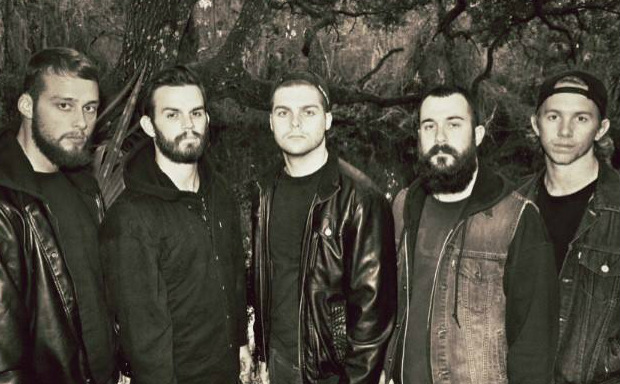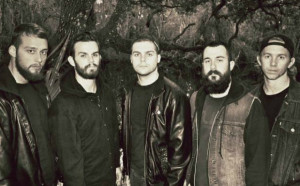Mental health issues have never not been of paramount importance, but many of these problems are just recently coming to light – depression, anxiety, bipolar disorders, etc. As someone who struggles with some of these things myself, I can empathize.
Vocalist Johnny Crowder of Dark Sermon (who recently released their sophomore album, The Oracle) battles some of these same issues as well. To celebrate World Mental Health Day, Johnny posted an article chronicling his battles, struggles, and shows us that even musicians often struggle. Check out the full article below, and if you or someone you know needs to see this, please share it around.
THERE IS NOTHING “WRONG” WITH YOU: MENTAL HEALTH AND SOCIAL STIGMA, by Johnny Crowder
My name is Johnny and I’d like to borrow five minutes of your time to talk about some stuff that has become paramount in my own life, as I’m sure it has in the lives of millions and millions of others.
Six years ago, after countless unsuccessful attempts, my mother finally managed to drag me into a therapist’s office. And I fought her every step of the way. Did I hear voices? You bet. Did I hallucinate? Sure thing. Was I delusional? At times. Did I count my steps, avoid cracks in the sidewalk, carry hand sanitizer with me everywhere I went, and crank out excuses for fist-bumping instead of shaking hands? Haha… Yep. Guilty on all accounts. And did I want to kill myself? Morning ‘til night, day in and day out, with every fiber of my being.
The doctor sat me down and handed me a laundry list of diagnoses a mile long. I stared at the floor as he tried to give me the whole “you’re pretty jacked up, dude, but we can help” speech, but I was busy trying to make sense of what I was being told. Schizophrenia? Are you serious? Don’t those people get locked up for life? And aren’t bipolar folks the ones bashing their heads through windows and yelling at cashiers at 7 Eleven because they’re out of black and milds? That’s not me, is it? I don’t need to wear a straightjacket, do I?
I was doomed. I felt helpless. So helpless that all I could do was allow men and women with diplomas on their walls to pump me full of medicine until I couldn’t get out of bed. I trusted them to an extent, but there was a part of me that needed to know more. So I went to college and majored in psychology, dead set on learning more about what was really “wrong” with me.
I learned a few things. Depression? Yeah, that’s a real thing. Scientifically. With neurotransmitters and the whole deal. It’s measurable. It’s not just some sad girl sitting on a couch pounding Ben & Jerry’s because her boyfriend dumped her. And schizophrenia? It’s not just a drunk homeless dude whispering sweet nothings into the ear of his invisible companion. Bipolar? You guessed it. Mood swings aren’t just for steroid users and pubescent females. And OCD isn’t just a major plot point in the TV show Monk (although I used to love it). It’s not as simple as we as a people have made it out to be over years and years of generalization. And it affects a far greater percentage of the population than we like to acknowledge.
Whether we realize it or not, and oftentimes we don’t, we are conditioned from birth to understand certain things in a skewed, yet seemingly universally accepted light. Aliens want to probe us, hot dogs are an acceptable entrée, college is mandatory to achieve success in any field, and so on. Media and our societal and cultural norms teach us, from our unwitting and impressionable youth into our adulthood (where we then pass on our practices to our young ones), what and how and why to think.
The prevailing image of a character in any form of media that is mentally ill is a disheveled, frantic man or woman with a thin line separating their instability from full blown psychosis. We hear murderers and rapists plead insanity to escape the charges of heinous crimes. The social stigma associated with any sort of psychological disorder is so debilitating that people who are dealing with any of these issues are quite literally scared into suppressing them (myself included). We hide them from the view of others to save ourselves from rampant judgment, insensitivity, and even discrimination. People shouldn’t have to “admit” that they are depressed. An “admission” implies fault or wrongdoing. And we as a community wouldn’t feel so ashamed about speaking openly about our own mental health if the media and prevailing mindset of our society didn’t associate the whole subject matter with lesser intelligence, sloth, violence, and a slew of other negative connotations. Contrary to popular belief, the people you see as “sick” are among the strongest humans alive.
So yeah, I’ve got a few screws loose. I’ll be the first to say it. Do I rock back and forth when sitting down? Yes, with great frequency,and I’m tired of restraining myself from doing so in public. Do I use hand sanitizer before I eat? Of course. Do I still suffer from some of the same symptoms that have plagued me since my youth, even though I have made incredible progress? Sadly, yes. But, in spite of all of this, I’m great with children, I hold the door open for the person behind me, I say “yes, sir” and “no, ma’am”… I’m just a dude. Can I hold a steady job? What about friendships? Even healthy relationships? Yes, yes, and yes again. Do I lean on alcohol, cigarettes, or substances to help me deal with my issues? Nope. I’m bone dry sober. Is it possible that some things are more difficult for me to maintain considering what I am dealing with mentally? Absolutely. But no diagnosis, no label, no category, no list, no medication, no doctor has the power to pigeonhole or limit me. I know who I am. I am a human being. And so are you.
We are routinely stereotyped to be irresponsible, untrustworthy, loopy, absent-minded, and even dangerous. But I bet if I didn’t write this out, you wouldn’t have a clue I was any different from you, your friends, or anybody else. I’m just tired of hiding.
I am mentally ill and I don’t care if the whole world knows it. In fact, I hope the whole world hears. I’m not scared of your labels anymore. They don’t define me. They can’t.
There is nothing “wrong” with me. Or you. Or any of us.
If I can tell the internet, you can tell a friend, a parent, your significant other… someone. Anyone. Everyone knows someone who lives with mental illness, and I want to get to a point as a society where we can openly talk about these things as a community. Think about it.






More Stories
The legendary Grand Ole Opry celebrates its 50th anniversary with a special show
A Cup Of Coffee With Craig Wayne Boyd (Interview)
A Cup Of Coffee With T. Graham Brown (Interview)